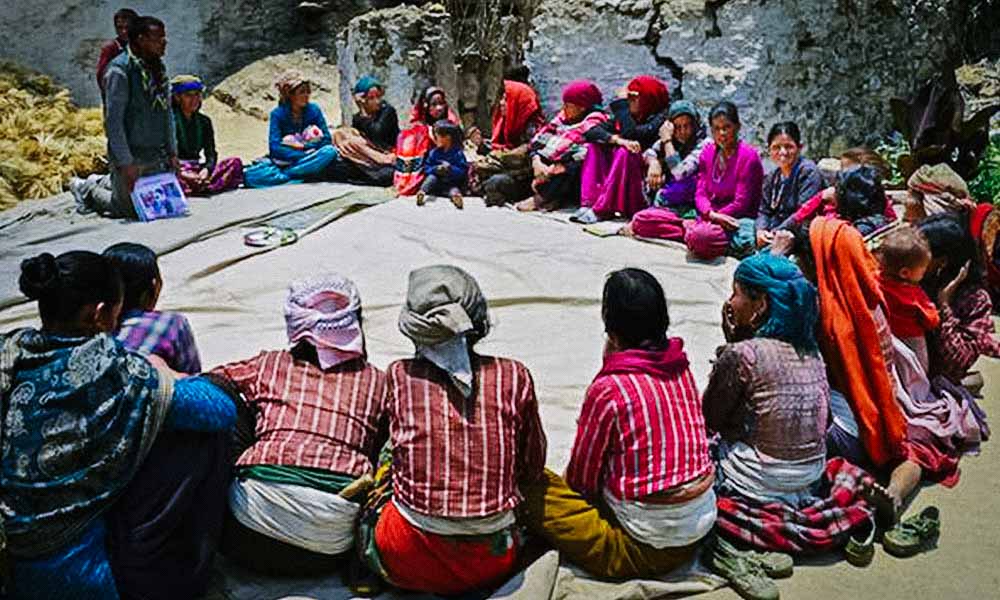What does ‘sustainably improved quality of life for poor and marginalised people’, the goal of INF’s Community Health and Development [CHD] work, actually look like? INF’s Communications Team visited some of the remotest parts of INF’s working areas in Mid-Western Nepal to explore this question.
Team member Kylie Colville discovered it in a group of 40 women in the remote hills, working together to bring about change in their village…
High in the mountains, in some of the poorest and most remote places across Western Nepal, INF is working to empower locals through the formation of Self-Help Groups [SHG] such as the one in Marchi, Jumla District. We walked to the village to find a group of 40 women working together to bring about change in their village.
Humble huts perched precariously on a steep mountainside to form the village of Marchi, an hour’s walk uphill from the closest road. Marchi is both isolated and poor. On our arrival we found buffalo chewing on their morning straw, wheat freshly harvested, shy dusty faces poking out from behind stacks of firewood but no sign of the ‘Rupeli Devi’ Mother’s SHG we had come to meet.
As we sat in the shade of a wheat stack and recovered from our trek, women slowly began appearing from the various terraces that formed our view. Dressed in their traditional cross over ‘cholo’ tops and wrapped skirts it was like observing a uniformed workforce gathering for a rally and in some ways that is what these courageous ladies are doing. As they meet each month to discuss the development of their village and participate in health, sanitation and nutrition training they are a workforce united to bringing hope and change to their families and their community. They sat proudly, smiling as they told of what they had learnt and how the group was impacting both them as individuals and as a community.
This particular SHG is a mother’s group of 40 members. It is facilitated by a government appointed community health volunteer and an INF facilitator provides support and runs some of the training sessions focussed on family planning, safe pregnancy and safe delivery practices.
Once a month each member of the group deposits NPR50[less than half a US Dollar] into a group saving account. This accumulates and enables members to take out loans from the group with a low interest rate of 2%. Recently, the group used money from the savings fund to enable a pregnant woman in the village to travel by bus to hospital for an assisted delivery she required. Empowered by their ability to provide from within their own limited means this group of mothers is determined to work together and build a better quality of life in their village.
One of the key focuses of INF’s community work approach is the empowerment of individuals and entire communities. Whilst INF’s Group Action Process includes both men and women, there is an added emphasis on the empowerment of women, as the Nepali context has traditionally undervalued the importance of women in community decision-making and problem solving.
Community Health and Development [CHD]
The overall goal of INF’s CHD work can be summarised as: ‘Sustainably improved quality of life, especially for poor and marginalised people in INF’s working areas.’
INF aims to achieve this through an approach that emphasises participation from the communities. It is based upon people identifying their own needs and how these can best be met, assisting members of a community to identify a community’s concerns, mobilize resources, and implement solutions. At its heart are three distinctives that together make our CHD model a long-term solution to poverty; We empower, equip and release communities for life.
PRAY | GIVE | GO | SHARE – Please pray for Self-Help Groups like the one in Marchi, that they would continue to grow and seek change for their communities.



